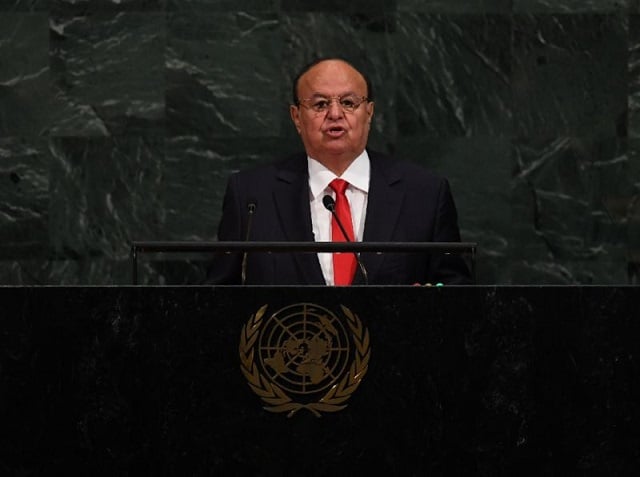
"The military solution is the most likely because it is not their [the Huthis'] decision to make," he said in an interview with Al-Arabiya television broadcast at the weekend, referring to the rebels and their backers, Iran.
"Even if you come to an agreement with them, they call up Iran ... back out, and then you don't have a deal," he said.
The interview came just days after the third anniversary of the Huthi takeover of Sanaa, which the rebels control in coordination with forces loyal to Yemen's ex-president Ali Abdullah Saleh.
The rebels were in March 2015 on the verge of seizing total control of Yemen when Saudi Arabia formed an Arab military coalition and intervened in support of Hadi's forces.
Yemen declares state of emergency over cholera outbreak
Hadi, who has taken refuge in the Saudi capital Riyadh, said that US policy in the region had improved under President Donald Trump.
"The American position now is better than it was under [his predecessor Barack] Obama, because Obama's priority was getting the nuclear deal," which had allowed Iran to "expand" its influence, he said.
Hadi said Obama's secretary of state John Kerry had proposed he govern with a vice president chosen by the Huthis, a proposal he had refused.
In contrast, Hadi said his government was on the same page as the Trump administration with a common goal "to increase pressure on the Huthis and on Iran".
Although he largely discounted the negotiations track, Hadi said his internationally-recognised government would "continue to extend its hand to peace".
1719315628-0/BeFunky-collage-(8)1719315628-0-405x300.webp)


1731329418-0/BeFunky-collage-(39)1731329418-0-165x106.webp)


1731821450-0/Untitled-design-(17)1731821450-0-270x192.webp)
1731822323-0/Copy-of-Untitled-(4)1731822323-0-270x192.webp)









COMMENTS
Comments are moderated and generally will be posted if they are on-topic and not abusive.
For more information, please see our Comments FAQ